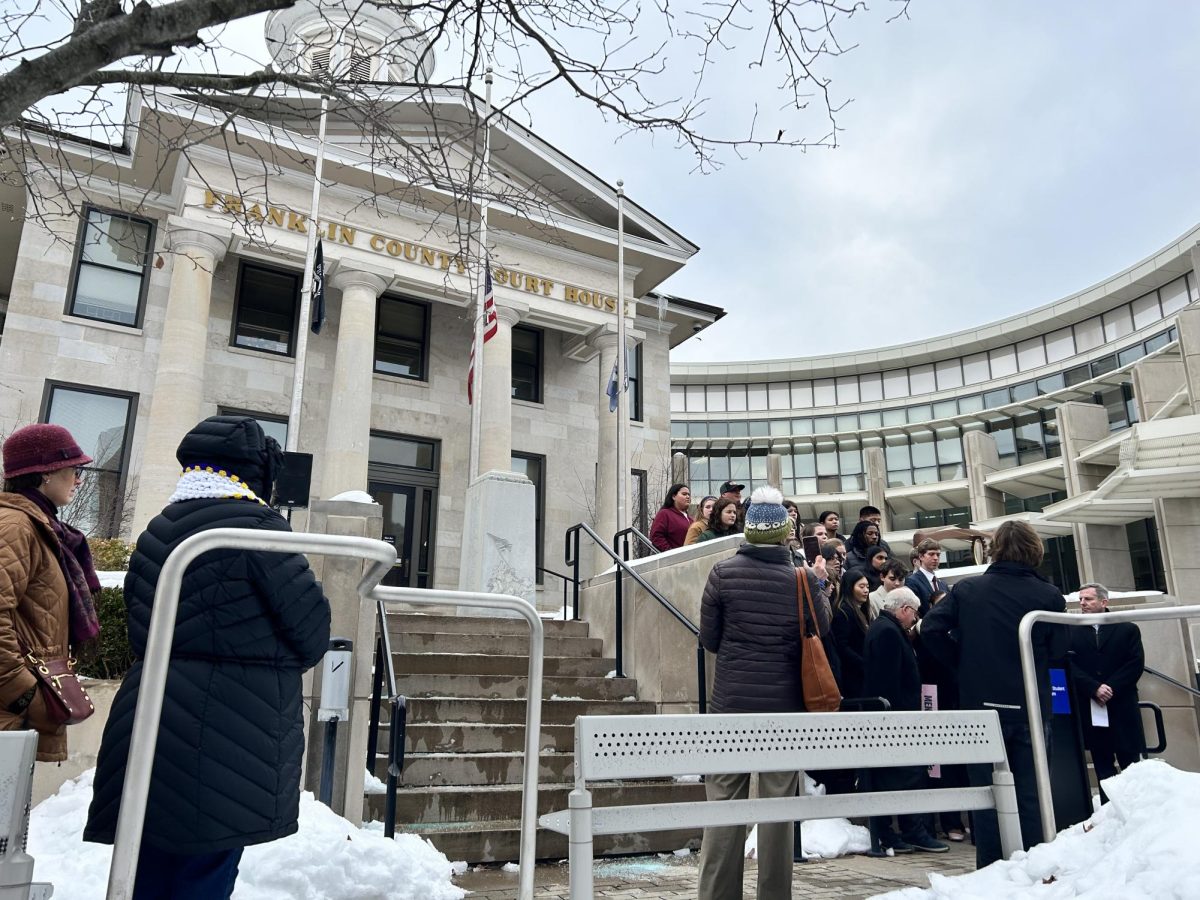Kentucky’s legislative session ended on April 15. Of the more than 1,200 bills filed this session, approximately 215 made it through the intensive legislative process to the governor’s desk. Not among them was Senate Bill 6 (SB 6).
The bill, which would have banned Diversity, Equity and Inclusion (DEI) initiatives in Kentucky’s colleges and universities, was watched closely by both those in support of and against the bill. However, to the pleasant surprise of DEI proponents across the state, the bill was not signed into law despite many attempts and several last minute changes.
More and more universities have introduced DEI programs in the last decade. Most institutions have a DEI policy to foster a more inclusive environment for faculty and staff to work well together. Some efforts focus on increasing representation and participation of diverse groups, while others aim to ensure everyone has the resources they need to succeed.
“DEI to me is a framework for us to understand and really kind of celebrate different ideas,” said Alyssa Betts, Program Director for the MLK Scholarship program at the University of Louisville. “I think if we’re not knowledgeable about these different topics we can’t really function with one another.”
While some see the intent of DEI as an essential tool for promoting inclusivity and correcting social and historical inequities, opponents tend to focus on the feelings of individuals. SB 6, introduced by Senator Mike Wilson (R), stated that students cannot be penalized or discriminated against due to their refusal to support a “divisive concept.”
As defined in the bill, these “divisive concepts” include ideas like, “one race or sex is superior to another,” “a person should feel guilt or discomfort due to their race or sex” or “The Commonwealth of Kentucky or the United States of America is fundamentally or irredeemably racist or sexist.” The bill’s intent is to avoid perceived discomfort for individual students.
SB 6 would have also allowed university employees and students to sue their institutions if they believed the law had been violated. Further noted in the bill is that an institution could not inquire about any person’s social or political viewpoint for tenure, hire or admittance. While many colleges and universities may already have this policy, this clause would ensure supporters of the bill who tend to lean conservative could not be kept out of universities due to their intolerance of diversity.
The initial version of the bill passed out of the Senate on Feb. 13 with a vote of 26-7. In order for a bill to become law, both the Senate and the House of Representatives must pass the bill. However, when SB 6 was received in the House, representatives made many changes to Wilson’s original bill.
Previously, the House had introduced their own Anti-DEI bill, House Bill 9 (HB 9), a more extreme version of SB 6. While SB 6 was more vague and could potentially be justified as preventing discrimination, HB 9 directly targeted funding for DEI offices and scholarships.
When SB 6 was passed from the Senate to the House, representatives added elements of HB 9 to SB 6, effectively making it more extreme and increasing the negative implications of the bill. Changes included that for any employee whose “primary duties include diversity initiatives,” that person must track their activities and ensure at least 50% of their time was dedicated to providing academic support to students. That clause would essentially prohibit anyone from working full time on DEI initiatives.
Additionally, the new version of SB 6 mandated that the college or university publish a list of all course materials for every class on a website in an easily accessible way. That would allow the public to monitor the types of discussions and instructions happening on campuses across the state.
“It would ensure the post-secondary system in Kentucky is held accountable,” Representative Jennifer Decker, sponsor of HB 9, said of her bill and its mandates for course content transparency.
After the House passed their new version of SB 6, it was sent back to the Senate. If amendments are made to a bill, like in the case of SB 6, both chambers must concur, or agree on the changes. Policy experts and DEI advocates felt sure that the republican led Senate would approve the changes since they had already passed the earlier version of the bill and since anti-DEI legislation seemed to be a legislative priority for the session.
“It would do a disservice to the University. Students aren’t going to be as encouraged to come to college if they don’t feel celebrated, if they don’t feel heard, if they don’t feel seen,” Betts said in an interview with the Kentucky Student Voice Team, contemplating a potential reality with a SB 6-like statute in place.
The reality was, if the Kentucky State Senate passed the bill by April 2, even if the Governor vetoed the bill, the supermajority in the legislature would simply override the veto, and SB 6 would become law. However, unexpectedly, the Senate chose not to vote on the measure, effectively protecting DEI in higher ed in Kentucky for now.
Bills like SB 6 and HB 9 are part of a nationwide trend of anti-DEI legislation. Over 30 states introduced bills targeting DEI initiatives this year alone with varying success. The “assault on DEI” began early last year with Florida leading the way. This year Alabama passed their own DEI ban for colleges that will take effect on Oct 1. Similar to the last version of SB 6, the law bans DEI programs and prohibits universities from teaching “divisive concepts.” Just this past month, The Texas Tribune reported that University of Texas Austin had fired about 60 employees to comply with the state’s ban on DEI initiatives in public universities passed last year.
With an increasing number of states passing anti DEI legislation every year, Kentucky is not out of the water yet. Since SB 6 gained significant traction this year, advocates would not be surprised if a similar bill is introduced again next year. A possibility many DEI proponents fear.








